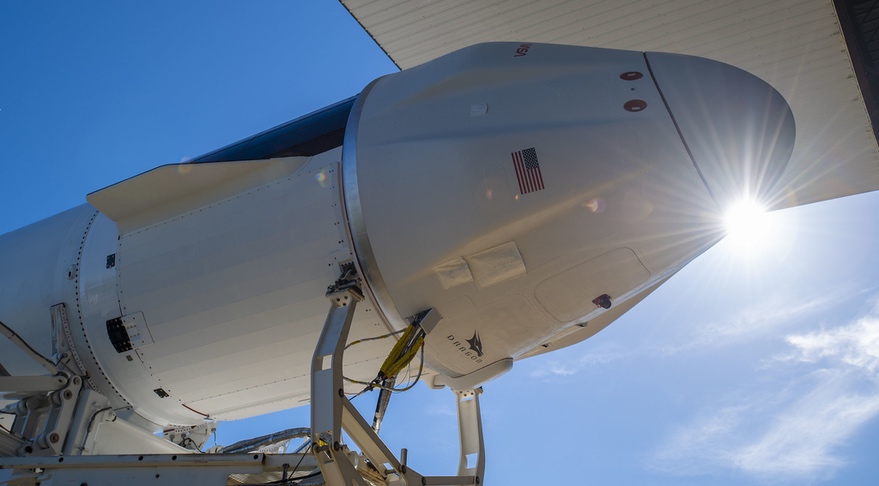Products You May Like
WASHINGTON — A SpaceX Dragon launching soon to the International Space Station is the last cargo version of the spacecraft the company expects to build, with one more crewed spacecraft under construction.
At an Nov. 18 briefing about the upcoming SpaceX CRS-26 cargo mission to the station, NASA and SpaceX announced the launch, previously scheduled for Nov. 21 from the Kennedy Space Center, had slipped a day to Nov. 22 at 3:54 p.m. Eastern. A launch that day would allow the Dragon to dock with the station Nov. 23 at 5:57 a.m. Eastern.
Sarah Walker, director of Dragon mission management at SpaceX, said the delay stemmed from repairs to the spacecraft required after detecting a leak in the spacecraft’s thermal control system during pre-launch processing. The leak was tracked down to a single flange whose rubber seal was damaged, which has since been repaired.
Those repairs “put us about a shift behind” the schedule for a Nov. 21 launch, she said, leading to the decision at the mission’s launch readiness review to instead attempt a launch Nov. 22. Weather forecasts project only a 30% chance of acceptable conditions that day, however.
The launch will be the first flight of this spacecraft, designated C211, the third cargo version of the Dragon 2 spacecraft built by SpaceX. Since starting its Commercial Resupply Services 2 contract with the CRS-21 mission in late 2020, SpaceX has been alternating between two other cargo Dragon spacecraft, designated C208 and C209.
In addition to the three cargo Dragon spacecraft, SpaceX has four Crew Dragon spacecraft, and Walker revealed at the briefing SpaceX plans to build a fifth and likely final Crew Dragon. “This is the last new cargo Dragon spacecraft we plan to build,” she said. “We recently decided to build one more crewed spacecraft as well.”
Previously, SpaceX executives said four Crew Dragon spacecraft would be enough to meet its future needs. At an October 2021 NASA briefing, Walker said the four Crew Dragon vehicles the company planned then “seem sufficient to meet our manifest, which is thriving right now.”
At the Nov. 18 briefing, she attributed the decision for a fifth Crew Dragon to further growth of that manifest. That included NASA’s decision to add eight ISS missions to SpaceX’s existing commercial crew contract as well as an “exciting commercial human spaceflight manifest.” The new Crew Dragon, she said later in the call, should be ready for a first flight “in the 2024 timeframe.”
While each Crew Dragon or cargo Dragon mission requires a new trunk section, which is jettisoned prior to reentry, the capsule itself is designed for multiple flights. “About 15 flights is what we’re targeting right now,” she said. Some components are not likely to fly as many times, but overall each spacecraft should be capable of that many missions, she added. “The vast majority of the capsule should be at 15 flights.”
If the CRS-26 mission does not launch Nov. 22, Walker said the next launch opportunities are Nov. 26 and 27. The gap, she said, was in part due to airspace restrictions during the Thanksgiving holiday period, as well as orbital mechanics and the need to refresh some of the cargo on board.
